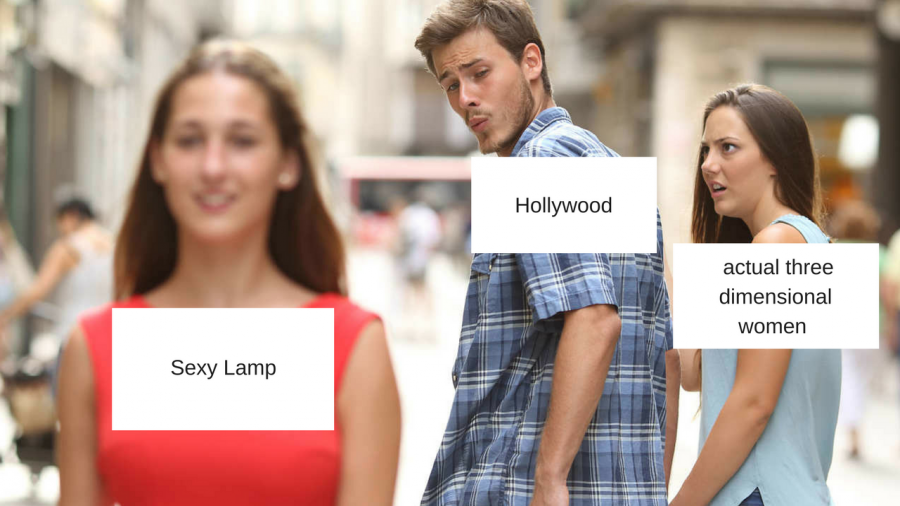“They’re such relationship goals!” said fans dressing up as Harley Quinn and the Joker, the fictional couple from the movie Suicide Squad. Other moviegoers might raise an eyebrow at such statements given the abusive nature of the couple’s relationship, but most continue gushing over the characters’ relationship.
We invest a lot of time, money, and even our lives into our favorite movies, TV shows, books and other stories we love. The rise of large and obsessive fandoms comprised of die-hard fans are a testament to that. Yet, we spend little time reflecting on these stories that consume us.
Popular stories may be relatable, touching, or just great entertainment, but they are not flawless. It is all too easy to become so absorbed that we forget they can have a greater, negative impact, both socially and on our own psyches.
Hollywood is infamous for its poor minority representation and whitewashing, which has shown to have far-ranging social repercussions on views, such as directly harming impressionable children. A recent study by Indiana University revealed that television exposure decreases self-esteem for white girls and children of color, since children are often adversely affected when they do not see people who look like them on-screen.
However, problematic stories go far beyond these common issues of racial representation and whitewashing.
Another problematic story that is not discussed enough in the media is that of token representation. Token representation occurs when minorities are represented on-screen, but remain one-dimensional characters. The majority of storylines still commit to stereotypical roles for women, like men being more controlling and women being wooed by them. An easy and amusing way to determine if women are given three-dimensional characters is to use the Sexy Lamp Test. In the words of Kelly Sue DeConnick, an outspoken writer at Marvel Comics, “If you can remove a female character from your plot and replace her with a sexy lamp and your story still works, you’re a hack.”
I’ll admit that women’s roles in stories have been progressing beyond the most stereotypically feminine roles, with narratives featuring women as ‘badass’ protagonists seen in Wonder Woman or Mad Max. This is commendable, but portraying women who embody traits associated with stereotypical masculine strength only serves to elevate masculinity and masculine traits over traditionally feminine ones.

Token representation can also occur outside of the story itself, such as when Harry Potter author J.K. Rowling suddenly revealed at a book reading that Albus Dumbledore, Harry’s beloved mentor, is gay. Dumbledore’s sexuality, however, was insignificant to the original Harry Potter book series. It was an afterthought; a box checked on a diversity list. Such portrayals lack neither thoughtful humanizing nor inclusivity for non-heterosexual characters.
The effect of absorbing such problematic storylines without reflection can be harmful to ourselves. When abusive relationships like Harley Quinn’s and the Joker’s are romanticized , we passively accept and normalize abuse in real life.
It can be tough to avoid all these subtle damaging influences around us, even though many critics argue that we should simply boycott these stories. Boycotting easily stops validating such harmful narratives and halts the cycle of the production of them. Of course, that is easier said than done because many of us still want to enjoy these stories for their entertainment value. We can still take a stance by actively engaging and reflecting after absorbing such media, or even speaking up and critiquing it on social media. We aren’t terrible people for indulging in the ‘guilty pleasures’ of our favorite problematic stories, but only if we can think critically about them and the messages they convey.
Opinion | The problematic stories we love
September 11, 2017
0
More to Discover


![A basketball swishes through the net, completing the perfect shot. [PHOTO COURTESY OF UNSPLASH]](https://blueandgoldonline.org/wp-content/uploads/2025/03/markus-spiske-BfphcCvhl6E-unsplash-1200x783.jpg)
![[PHOTO COURTESY OF DAVINA J. (‘25)]](https://blueandgoldonline.org/wp-content/uploads/2025/03/Double-Standards-BG-Graphic-1200x848.png)



![Wifi router in the courtyard outside the cafeteria at Taipei American School.
[MATTHEW WANG/THE BLUE & GOLD]](https://blueandgoldonline.org/wp-content/uploads/2025/03/IMG_3456-e1741410776380-1200x936.jpeg)